Autophagy: LC3 & GABARAP Antibodies
Both LC3 & GABARAP Are Essential for Autophagosome Formation
Autophagy is the main process for degrading damaged organelles and misfolded proteins. It plays a critical role in cell homeostasis, differentiation, survival during nutrient deprivation, and the growth regulation. Autophagy has also been implicated in several diseases, e.g. neurodegeneration disorders, cardiac myopathy, autoimmune disease and cancer.
The hallmark of autophagy is the formation of a double-membrane cytosolic vesicle, the autophagosome, which sequesters cytoplasm and delivers it to the lysosomes for degradation.
Download the full Autophagy catalog here |
LC3 & GABARAP antibodies
Autophagy-related 8 proteins (Atg8s) are one of the most highly-conserved eukaryotic protein families. They undergo a ubiquitin-like conjugation to phosphatidylethanolamine on the autophagic membrane. This modification is essential for autophagosome formation. Based on their amino acid sequence homology, at least eight different Atg8 orthologs belonging to two subfamilies (LC3 and GABARAP/GATE-16) in mammalian cells.
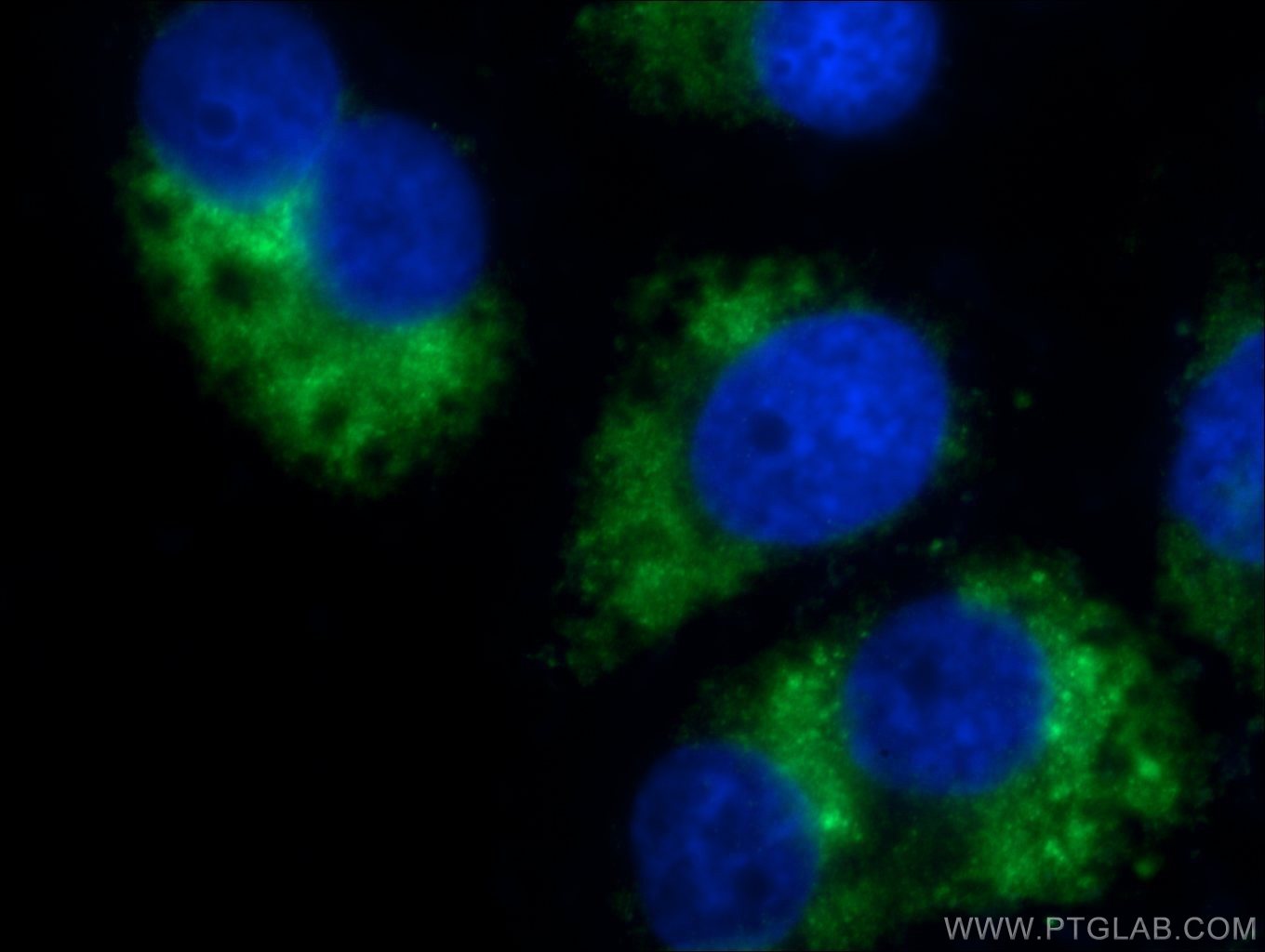 |
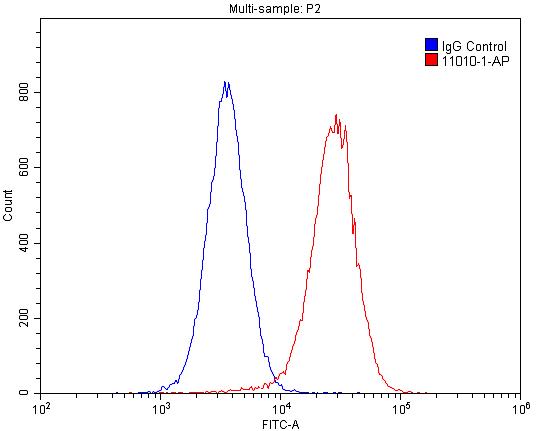 |
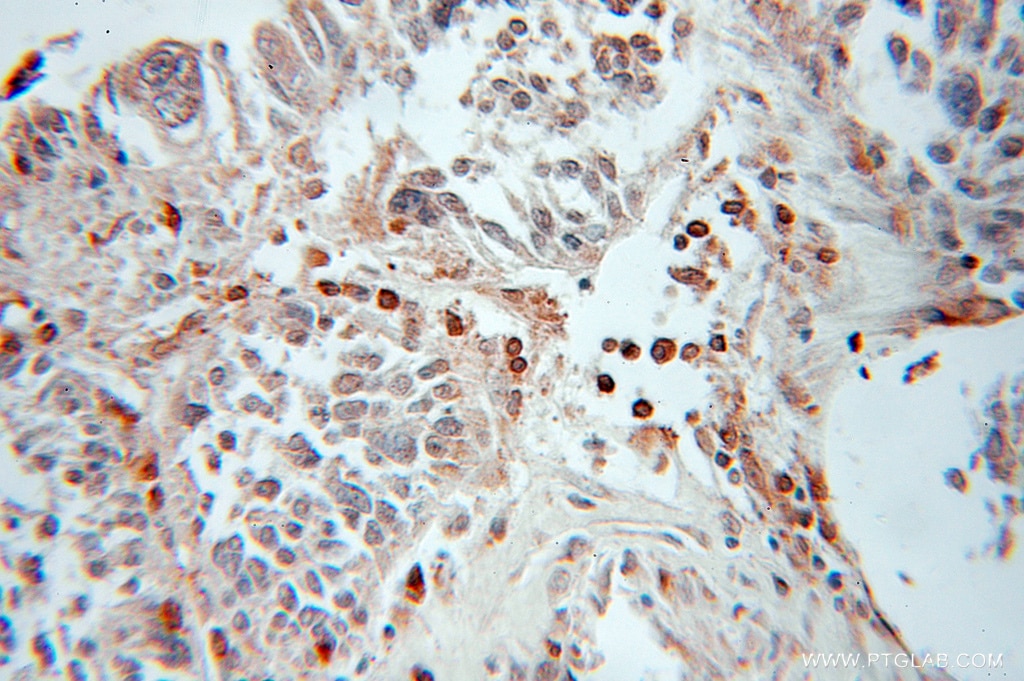 |
| IF analysis of HepG2 cells treated with chloroquine using GABARAPL1-Specific antibody (ATG8L, 11010-1-AP; 1:50, 40x) and Alexa Fluor 488-congugated AffiniPure Goat Anti-Rabbit IgG(H+L). | HepG2 cells were stained with 0.2ug GABARAPL1-Specific antibody (ATG8L, 11010-1-AP, red) and control antibody (blue). Cells were fixed with 4% PFA blocked with 3% BSA. Alexa Fluor 488-congugated AffiniPure Goat Anti-Rabbit IgG(H+L). | IHC analysis of paraffin-embedded human ovary tumour using GABARAPL1-Specific antibody (ATG8L, 11010-1-AP) 1:50, 40x) at dilution of 1:50; under 10x. |
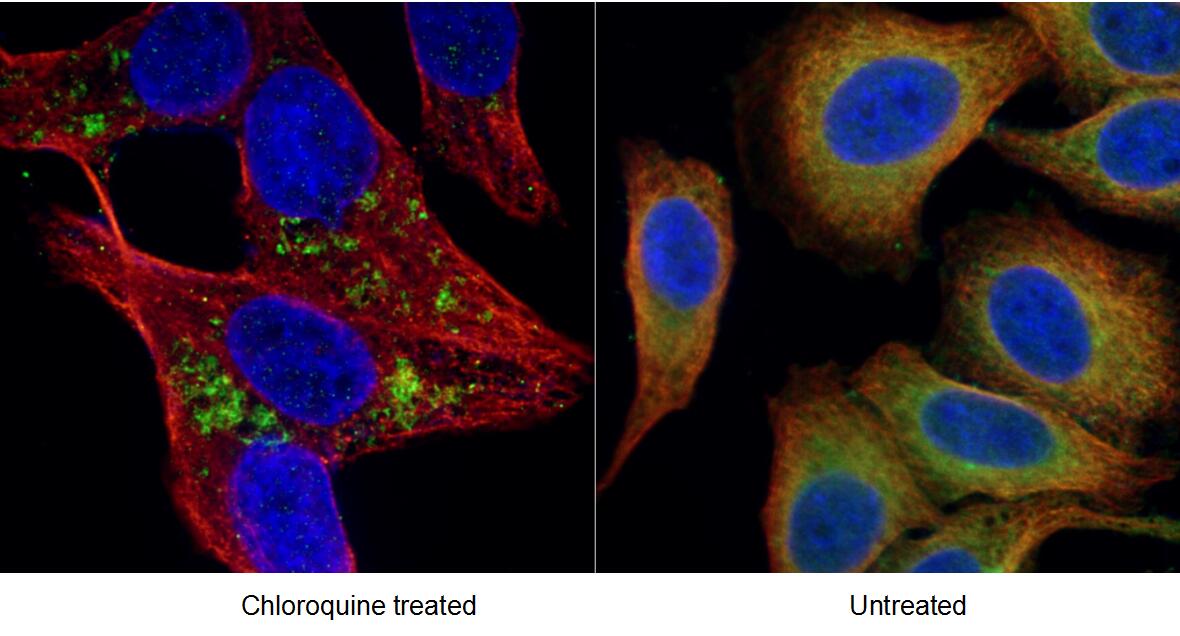 |
|
LC3B-Specific Antibody staining (18725-1-AP; 1:50; green) in untreated (Left) and Chloroquine treated (Right) HepG2 cells. The cells were co-stained with tubulin (66031-1-Ig; 1:100; red), under 40 x. |
LC3A-C (LC3A has two variants originating from alternative splicing event) belong to the LC3 subfamily while GABARAP, GABARAPL1, GABARAPL2 (GATE-16), and GABARAPL3 are members of the GABARAP/GATE-16 subfamily. LC3 and GABARAP/GATE-16 subfamilies are both essential in autophagosome biogenesis but have different functions. LC3s are involved in elongation of the phagophore membrane and final autophagosome formation whereas the GABARAP/GATE-16 subfamily is crucial for a later stage in autophagosome maturation.
Related Products
| Antibody | Catalog number | Type | Applications |
| GABARAP | 18723-1-AP | Rabbit Poly | ELISA, WB, IF |
| GABARAPL1 | 18721-1-AP | Rabbit Poly | ELISA, WB, IHC, FC |
| GABARAPL1-Specific | 11010-1-AP | Rabbit Poly | ELISA, WB, IP, IHC, IF, FC |
| GABARAPL2-Specific | 18724-1-AP | Rabbit Poly | ELISA, WB, IHC, FC |
| LC3A-Specific | 18722-1-AP | Rabbit Poly | ELISA, WB, IF, FC |
| LC3C-Specific | 18726-1-AP | Rabbit Poly | ELISA, WB, IF |
| p62/SQSTM1 | 18420-1-AP | Rabbit Poly | ELISA, WB, IP, IHC, IF, FC |
| p62/SQSTM1 | 66184-1-IG | Mouse Mono | ELISA, WB, IHC, IF |
Loading control antibodies
| GAPDH Antibody | 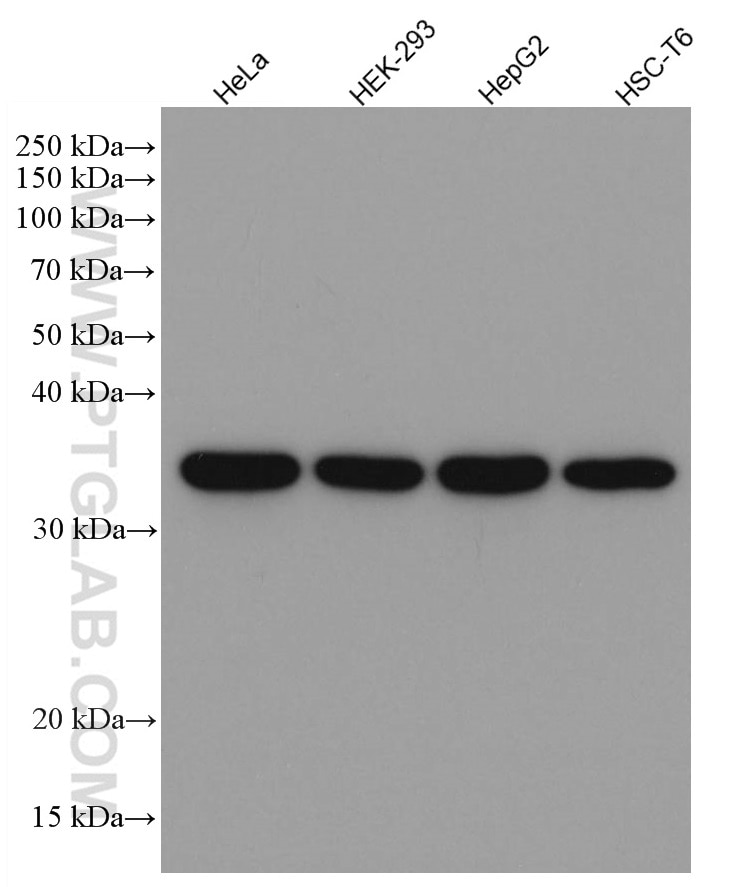 |
| Catalog no.: 60004-1-Ig | |
|
GAPDH is commonly used as a protein loading control in western blot due to its consistently high expression in most cell types. This enzyme participates in several cellular events such as glycolysis, DNA repair, and apoptosis. Proteintech monoclonal GAPDH antibodies are raised against a whole-protein antigen of human origin and have over 4,960 citations. |
| Beta Actin Antibody (KD/KO validated) | 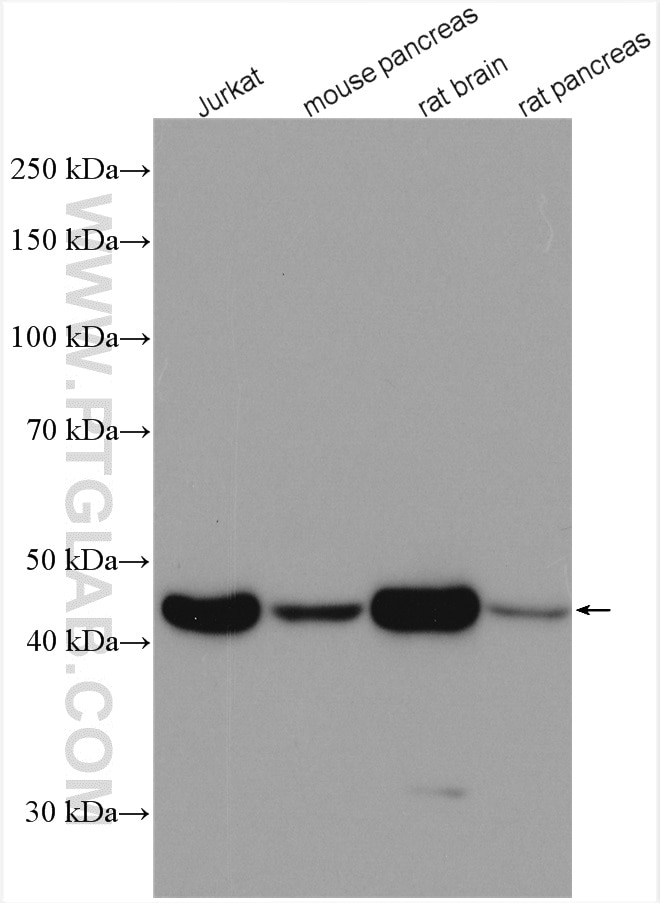 |
| Catalog no.: 66009-1-Ig | |
|
Beta-actin is usually used as a loading control due to its broad and consistent expression across all eukaryotic cell types and the fact that expression levels of this protein are not affected by most experimental treatments. 66009-1-Ig has been cited in over 2,460 publications and has wide species reactivity. |
